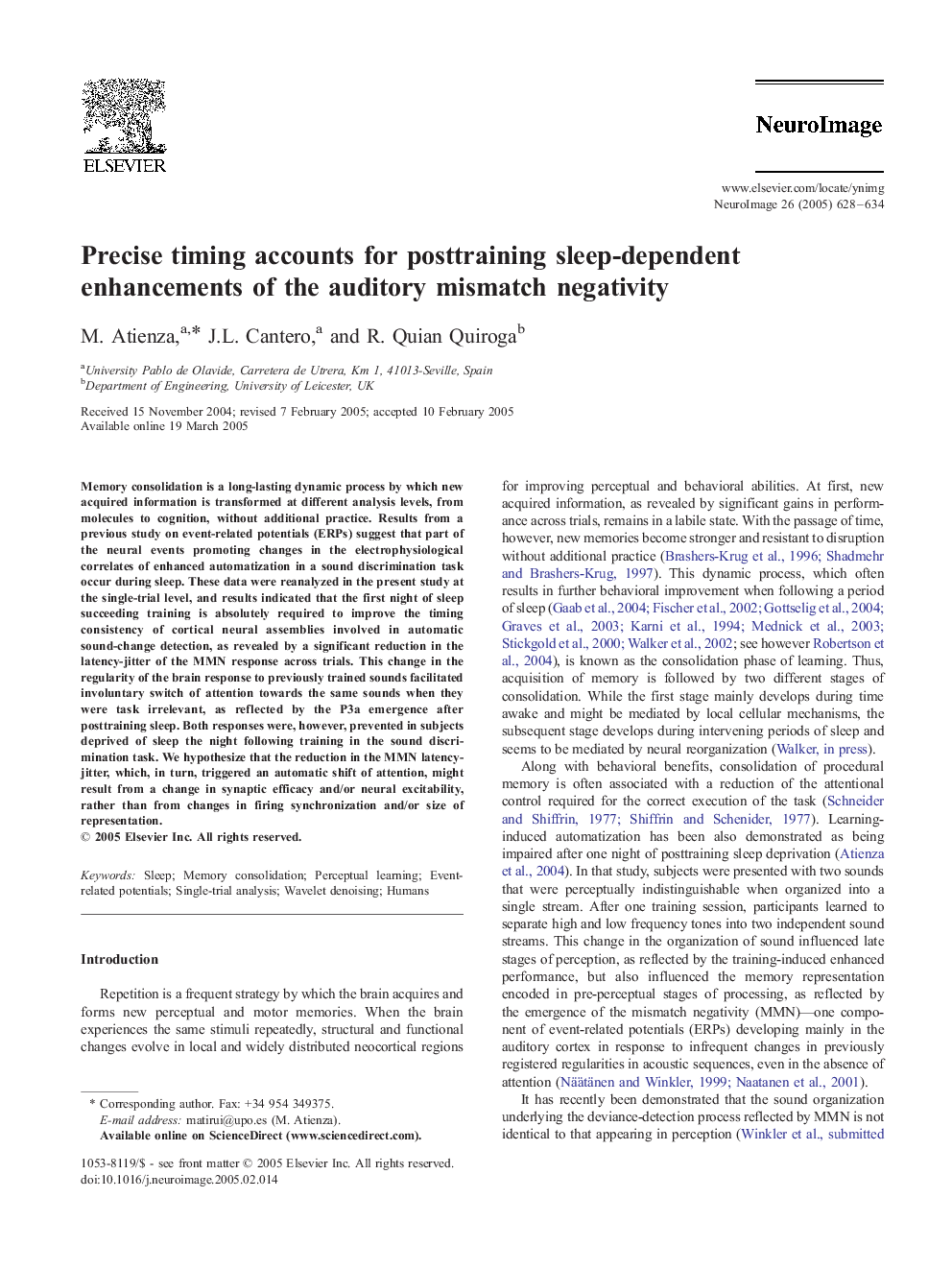| Article ID | Journal | Published Year | Pages | File Type |
|---|---|---|---|---|
| 9197922 | NeuroImage | 2005 | 7 Pages |
Abstract
Memory consolidation is a long-lasting dynamic process by which new acquired information is transformed at different analysis levels, from molecules to cognition, without additional practice. Results from a previous study on event-related potentials (ERPs) suggest that part of the neural events promoting changes in the electrophysiological correlates of enhanced automatization in a sound discrimination task occur during sleep. These data were reanalyzed in the present study at the single-trial level, and results indicated that the first night of sleep succeeding training is absolutely required to improve the timing consistency of cortical neural assemblies involved in automatic sound-change detection, as revealed by a significant reduction in the latency-jitter of the MMN response across trials. This change in the regularity of the brain response to previously trained sounds facilitated involuntary switch of attention towards the same sounds when they were task irrelevant, as reflected by the P3a emergence after posttraining sleep. Both responses were, however, prevented in subjects deprived of sleep the night following training in the sound discrimination task. We hypothesize that the reduction in the MMN latency-jitter, which, in turn, triggered an automatic shift of attention, might result from a change in synaptic efficacy and/or neural excitability, rather than from changes in firing synchronization and/or size of representation.
Keywords
Related Topics
Life Sciences
Neuroscience
Cognitive Neuroscience
Authors
M. Atienza, J.L. Cantero, R. Quian Quiroga,
